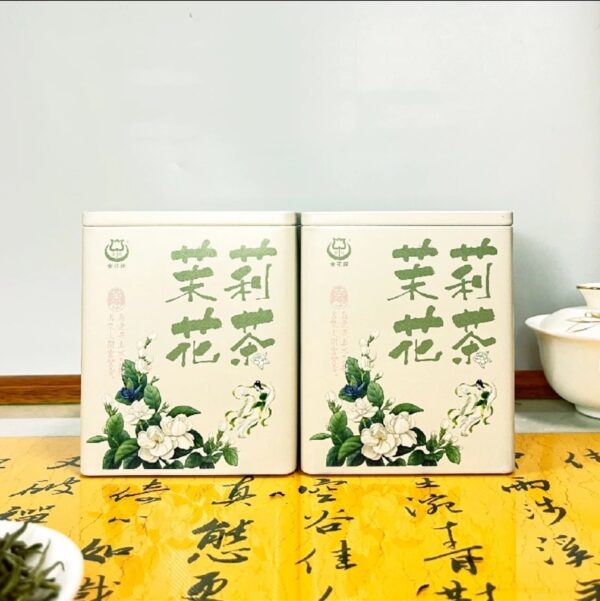
# Jasmine Tea: A Fragrant Journey Through Tradition and Flavor
The Timeless Allure of Jasmine Tea
For centuries, jasmine tea has captivated tea enthusiasts with its delicate floral aroma and soothing taste. This fragrant beverage, born from the marriage of tea leaves and jasmine blossoms, represents one of China’s most cherished tea traditions. The art of scenting tea with jasmine flowers dates back to the Song Dynasty (960-1279 AD), when tea makers in Fujian province first discovered how to infuse tea leaves with the intoxicating scent of night-blooming jasmine.
The Meticulous Craft of Jasmine Tea Production
Creating authentic jasmine tea requires patience and precision. The process typically begins with a base of green tea, though white or black tea may also be used. Jasmine flowers are harvested during their peak blooming season in late summer when their fragrance is most potent. The tea leaves and flowers are carefully layered together, allowing the tea to absorb the jasmine’s essential oils through multiple scentings. This labor-intensive method can take several nights to complete, as the flowers are replaced with fresh blossoms each time to ensure maximum fragrance.
Key Steps in Jasmine Tea Production:
- Tea leaf selection and initial processing
- Timing the harvest of jasmine blossoms (typically at dusk)
- Layering tea leaves with fresh flowers
- Repeating the scenting process over several nights
- Final drying to remove moisture while preserving aroma
Flavor Profile and Varieties
Jasmine tea offers a harmonious balance of floral sweetness and the natural characteristics of its tea base. When brewed properly, it yields a pale golden liquor with a perfumed aroma that’s both uplifting and calming. The flavor spectrum ranges from delicate and sweet to more robust and floral, depending on factors like:
- The type of tea base used (green, white, or black)
- The number of scentings the tea has undergone
- The quality and freshness of the jasmine blossoms
- The growing region and terroir
Keyword: jasmine tea
Health Benefits of Jasmine Tea
Beyond its delightful taste, jasmine tea offers numerous health benefits, primarily derived from its tea base and the natural compounds in jasmine flowers. These include:
- Antioxidant properties from polyphenols that may help combat free radicals
- Stress reduction through the calming effects of jasmine aroma
- Digestive aid that may help soothe stomach discomfort
- Potential heart health benefits associated with regular tea consumption
Brewing the Perfect Cup
To fully appreciate jasmine tea’s delicate flavors, proper brewing is essential. Here are some tips:
- Use fresh, filtered water heated to about 175°F (80°C) for green tea bases
- Steep for 2-3 minutes to avoid bitterness
- Use about 1 teaspoon of tea leaves per 8 oz cup
- Consider multiple short infusions to enjoy evolving flavors
- Serve without milk to appreciate the pure floral notes
Cultural Significance
Jasmine tea holds a special place in Chinese culture, often served during important occasions and ceremonies. Its fragrance symbolizes purity and elegance, making it a popular gift. In traditional Chinese medicine, jasmine is believed to have a cooling effect on the body
